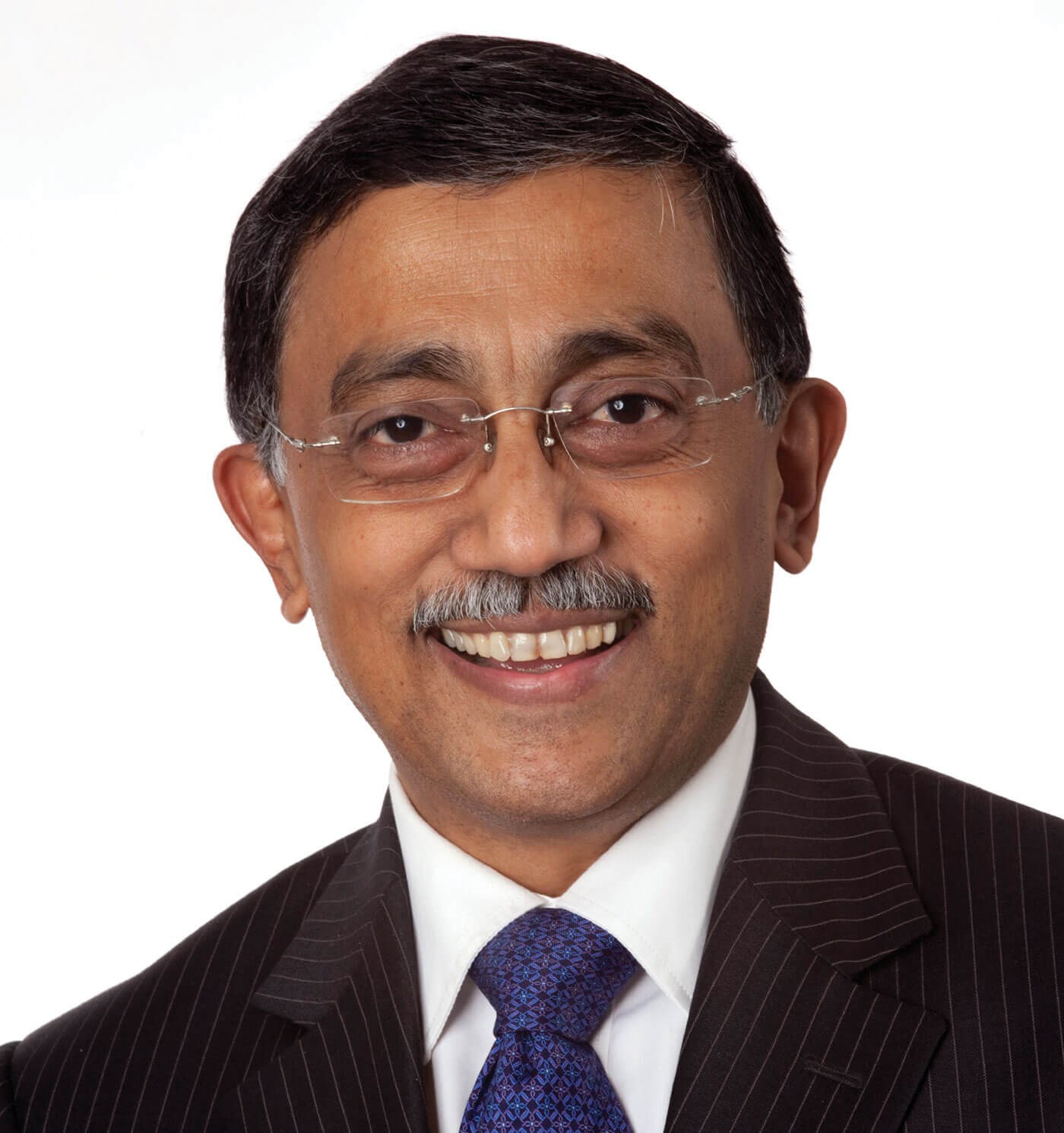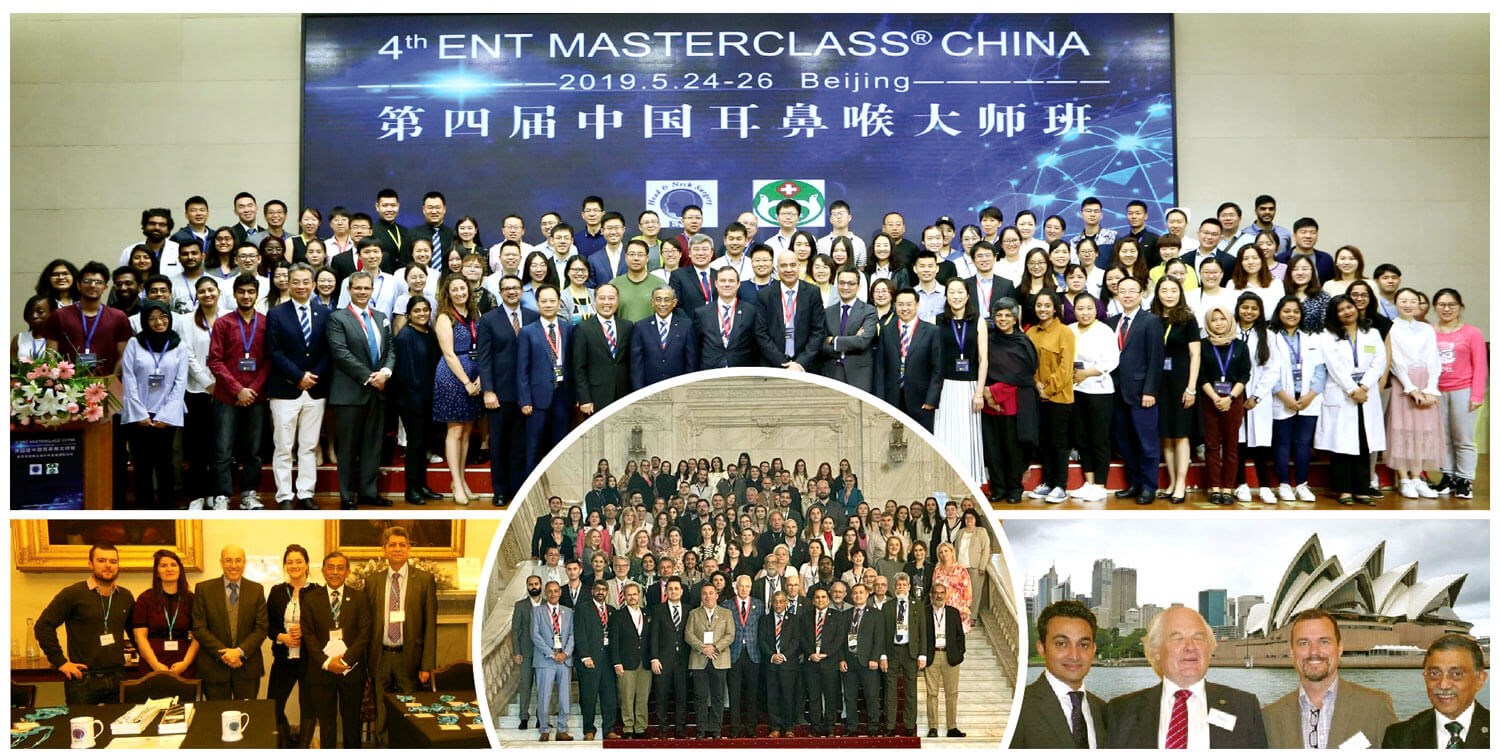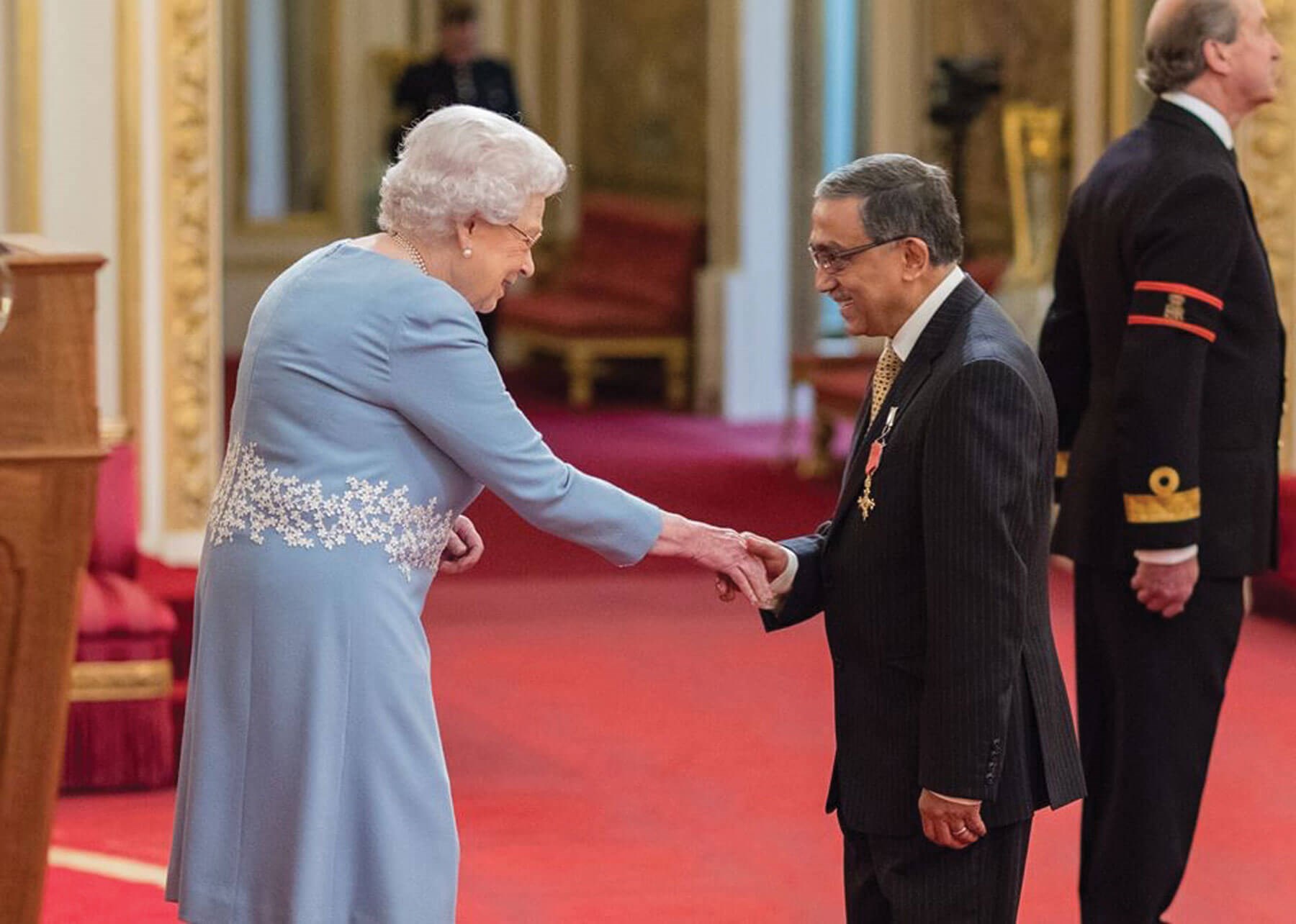
Professor Shahed Quraishi OBE.
The ENT Masterclass® has been one of the most successful endeavours in ORL education and training in modern times. It has now been around for two decades. To mark the occasion and celebrate a coming of age, Professor Ray Clarke caught up with ENT Masterclass® creator, pioneering Doncaster (UK) surgeon Professor Shahed Quraishi OBE.
I often wondered how a small local course conceived in 2004 to prepare candidates for the fellowship examination morphed into a huge international brand. The ENT Masterclass® is just that: ORL’s equivalent of a multinational company.
It is now a global franchise, encompassing congresses, a journal, a cyber-textbook, 650 ‘how I do it’ videos, a multi-medium platform and a teaching website that is the envy of other surgical specialties. It supports 2500 delegate places per year, spans four continents and transcends national, geographic and political boundaries – all provided free. If it sounds miraculous, in a way it is.
I asked my good friend Professor Shahed Quraishi – affectionately known as Q – how it came about and, more important, where it is going.
Contrary to popular belief, Q was neither blessed with a silver spoon nor anointed with the trappings of privilege and easy favour that make for a smooth uninterrupted ascent up the ORL career ladder. It was a struggle. He grew up in what was then East Pakistan (now Bangladesh). His early days in medicine were dogged by uncertainty, visa issues, obstructive consular officials, political chicanery, even open hostility from some quarters. He arrived in the UK to face some bizarre and often seemingly petty bureaucratic hurdles. He faced trials and tribulations which would have broken most of us and came very close to abandoning ORL in the 1990s. Common sense prevailed. A small group of mentors and friends – to whom he is eternally grateful – spotted his talent and resilience so that he was appointed a consultant in Doncaster in 2004.
Prof Quraishi doesn’t dwell on all this when I meet him. When I put it to him that he is motivated by this back story – overcoming the kind of adversity that would have made most of us world-weary and cynical – he demurs. Dwelling on the past is not for him. He embraces challenge. In a world where it seems increasingly difficult to find good people, he has a gift for seeking them out, nurturing them, encouraging them and channelling their energy and creativity into worthwhile projects.
I probe him about how the Masterclass® started. Not long into his post, he was appointed as training programme director in South Yorkshire. It was an inspired choice. He was tasked with energising the programme at a time when educational budgets were under pressure, courses tended to be ad hoc and of variable quality, and there was a great deal of apathy among both trainers and trainees.
Grasping the challenge, he called on his trainers and friends to form the nucleus of a faculty, prevailed on hospital managers to give him a venue and fed 50 hungry delegates. A debt of £1500 didn’t deter him, and the central philosophy of that early course – ‘high quality education, free at the point of delivery’ – remains the core mission of the Masterclass® 20 years on. Today, he tells me the organisation has “no paid staff, all the admin jobs are done by volunteers; from maintaining the website, to answering emails, to preparing course hospitality to inviting speakers, et cetera.”
Has he been taken aback by the success of the Masterclass®? He has. In his own words, it was “beyond my wildest dreams”.

The ENT Masterclass® has taken place in countries including: (clockwise from top)
China (2019), Australia (2016), Romania (2023) and London (2014).
The Masterclasses® are led by some of the leading luminaries of our specialty. How does Prof Quraishi manage to motivate these very busy – and very much in-demand – colleagues not only to give up their time but also to travel at their own expense to far-flung venues to share their wisdom? “What has amazed me was the generous hospitality and camaraderie from ENT colleagues from all across the globe,” he says.
We both agree that this sense of camaraderie, of giving back, was a huge part of worldwide ORL, and we should all take pride in how our specialty embraces this generosity. “Today we have over 250 faculty members from New York to Sydney who volunteer their time and resources, paying for their travel and hotels all in the spirit of giving back,” he says. “I believe in the philosophy that there are enough good people out there; it’s for us to go out and find them. In 20 years, I have been completely overwhelmed by the devotion and commitment of the faculty and volunteers who have kept this free training programme as a major training resource for colleagues all over the world.”
Global outreach has been a key feature of the project, and the way the Masterclass® has spanned national, political and geographical boundaries has been a particular source of pride to Prof Quraishi. “We now operate in 16 countries on four continents,” he says.
"I have been overwhelmed by the devotion and commitment of the faculty"
He doesn’t divulge all his diplomatic secrets, but it is clear that phone calls, letters, personal contacts, charm offensives and sheer dogged perseverance – often reinforced by humility, a very thick skin and a refusal to give up – helped smooth the passage of the idea into ORL communities in India, China, the Middle East, Africa and Eastern and Central Europe. Trainers in low-resource healthcare communities often look enviously at the high-quality educational and training resources we take for granted in developed western economies. The Masterclass® transcends these boundaries and is the best example of levelling up I can think of in the world of ORL. Encouraging and empowering local trainers and giving them the tools to develop their trainees in their own communities has been key.
“Some of our faculty members, especially those who often went on training events to the developing world, felt that we should set up an ENT Masterclass® model for them,” he says. “In 2014, the ENT Masterclass® Academic Travelling Club was born with a visit to Delhi and Mumbai in India. In total we had 1800 face-to-face delegates along with live video streams to 13 cities across the sub-continent. We soon teamed up with Professor Johan Fagan in Cape Town to cover Africa, Professor Viorel Zainea in Bucharest covering Central and Eastern Europe, Professor Khalida Shaykhova in Tashkent to cover Central Asia, Dr Hiba Al-Reefy in Bahrain to cover the Middle East, Professor Shusheng Gong in Beijing to cover China and South East Asia and Associate Professor Faruque Riffat in Sydney to cover Australasia and the Pacific.”
If the teaching is delivered by world experts, the content is moulded and dictated by the needs of delegates. “One of the most important tools of our success has been the feedback forms,” he says. “We actively encourage the delegates to submit anonymised feedback and some of the best ideas for future development of this platform have been from the feedback comments. For example, the concept of virtual lectures streamed over the internet was started by us in 2010 as a result of delegate feedback, long before the advent of Zoom, Teams, etc. Similarly, the Cyber Textbook of ENT Surgery, a collection of 640 surgical videos from surgeons across the world – a unique free resource of ‘how I do it’ – was based on ideas from feedback forms. We get over 1000 visits per week to our free online resources at www.entmasterclass.com”
Although the Masterclass® was delivering virtual learning long before the pandemic forced us to suspend face-to-face meetings, Prof Quraishi is still upbeat about the need for in-person teaching. “Much better to sit in the stands and watch Manchester United live at Old Trafford than to watch a recording on TV,” he says. “There is also the element of networking and nothing can replace the personal touch that comes with face-to-face meetings. During the Covid pandemic we launched a purely virtual event, The ENT Masterclass® Global Townhall, which was based on an international ward round with faculty panels from across the world discussing interesting cases, streamed live via our YouTube channel. I think a hybrid model is going to be the future.”

Receiving an OBE from the late Queen Elizabeth II in 2017.
©The Crown. Image owned by British Ceremonial Arts Limited (BCA).
It’s been an extraordinary 20 years. For Prof Quraishi it has brought well-deserved accolades. His OBE from Her Majesty the late Queen was very special. He is quietly proud of awards from the American Academy, the Royal College of Surgeons in Edinburgh and the Middle East Academy of Otolaryngology. He sees these as “the recognition of the good people who have supported the cause”. But the greatest honour has been “to see the devotion of the faculty and volunteers in delivering free training at the point of delivery”.
When asked where next for the Masterclass®, Prof Quraishi’s response is simple and direct. Fond of quoting the founder of the NHS, Aneurin Bevan, he tells me the Masterclass®, like the NHS “will last as long as there are folk left with faith to fight for it”. The mission is unchanged with a continuing focus on “keeping its national and international resources within the reach of colleagues and promoting cooperation between different clinical cultures across the globe”.
Here’s to the next 20 years!
The third Masterclass® World Congress is to come to Bucharest October 2024.





